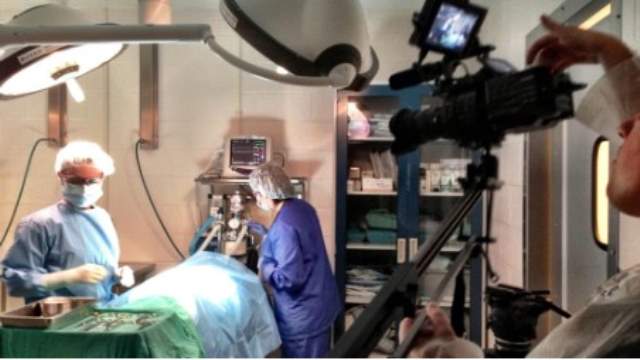From Good to Great: How Continuous Education Transforms Dental Practices
Introduction to Continuous Education
Continuous education is essential to any professional career, and dentistry is no exception. Dental professionals must keep themselves updated with the latest developments and technologies to provide the best care for their patients. Dental continuing education courses can help practitioners stay ahead and improve their skills continuously. This proactive approach ensures they remain competent and confident in addressing evolving patient needs. This article explores the various ways in which continuous education can benefit dental practitioners and their patients. It emphasizes the significance of keeping abreast of industry developments and provides practical suggestions for incorporating ongoing learning into daily routines. Continuous professional development enhances clinical skills, helps adapt to regulatory changes, and optimizes practice management strategies.
Importance of Keeping Up with Dental Innovations
The dental industry is rapidly evolving, constantly developing new technologies and practices. Staying updated with these innovations is critical for professionals to remain competitive and ensure they deliver the highest standard of care. Digital advancements such as intraoral scanners, CAD/CAM technology, and 3D printing have transformed dental procedures by increasing efficiency and reducing invasiveness. Keeping pace with industry trends is not just beneficial but necessary for advancement.
Technological advancements aside, patient demographics and expectations changes also necessitate continuous education. An aging population, for instance, brings unique challenges and requires specialized knowledge in geriatric dentistry. For instance, Invisalign in Singapore is a comfortable option than braces if you have moderately crooked teeth with misalignments. Therefore, staying updated is about embracing new tools and understanding the changing landscape of patient care.
Benefits of Attending Dental Training and Events
Participating in dental training and events offers numerous advantages. These events provide:
- A platform for networking with peers.
- Learning about the latest tools and techniques.
- Obtaining certifications that can enhance a practitioner’s credentials.
Additionally, it has the potential to promote individual development and spark fresh techniques for enhancing patient care. Attending conferences, workshops, and seminars provides opportunities to engage with thought leaders and industry experts who can offer valuable insights and foresight into future trends.
Networking Opportunities
Participating in industry gatherings enables dental professionals to network with colleagues, exchange insights, and gain knowledge from one another. These interactions can provide valuable insights and foster collaborative relationships that benefit their practices. Networking enables the sharing of ideas and best practices, resulting in innovative solutions for daily challenges in the dental field.
Learning About New Tools and Techniques
Training events often showcase the latest tools and techniques in the dental field. Exposure to these innovations can significantly enhance a practitioner’s ability to provide state-of-the-art care to their patients. For example, learning about advancements in laser dentistry or minimally invasive surgical techniques can dramatically improve patient outcomes and satisfaction. These hands-on experiences are invaluable for gaining confidence in utilizing new equipment and methodologies.
Obtaining Certifications
Many training events offer certifications upon completion. These credentials confirm practitioners’ skills, boost their professional standing, and create fresh career prospects. Certified practitioners are often preferred by patients seeking assurance of high-quality care. Furthermore, holding certifications can be a unique selling point in a competitive marketplace, helping to attract and retain clients.
Examples of Effective Continuous Education
- Online courses and webinars from accredited dental schools and institutions offer the flexibility to learn at one’s own pace. They can cover various topics, from clinical techniques to practice management.
- Dental associations host workshops and seminars. These events provide structured learning environments, interactive discussions, and hands-on practice opportunities.
- Hands-on training sessions for new dental technologies and procedures are crucial for gaining practical experience and confidence in using the latest tools and techniques in a clinical setting.
For instance, platforms highlight innovative trends in dental education through various channels. Such resources can provide comprehensive updates on new research findings, clinical guidelines, and emerging technologies, helping practitioners stay informed and competent.
Practical Tips for Dental Professionals
Here are some actionable tips for dental professionals seeking to engage in continuous education:
- Set aside time each week dedicated to learning and professional development. Carving out regular time slots for education ensures that learning becomes a consistent and integral part of your routine.
- Join professional associations to gain access to exclusive resources and events. Membership in such organizations often provides access to a wealth of knowledge, ranging from journals and research papers to exclusive webinars and discounted event fees.
- Stay connected with peers and mentors for collaborative learning opportunities. Forming study groups or participating in mentorship programs can facilitate mutual learning and provide diverse perspectives on complex issues.
Exploring Online and In-Person Training Options
Both online and in-person training have their unique benefits. Online options offer flexibility, allowing practitioners to learn at their own pace and schedule.
Utilizing a mix of online and traditional training can lead to optimal outcomes in a comprehensive educational experience. For instance, a practitioner might take an online course to learn the theoretical aspects of a new procedure and then attend an in-person workshop to practice and refine their skills. This blended approach ensures comprehensive understanding and practical expertise.
Adjusting to New Technologies in Dentistry
Embracing innovations such as digital impressions, 3D printing, and laser dentistry can significantly enhance the efficiency and accuracy of dental procedures. Continuous education is pivotal in easing this transition and helping professionals master these tools. Recognizing the advantages and drawbacks of modern technologies empowers professionals to make educated choices about incorporating them into their work. Moreover, staying updated with technological advancements ensures dental professionals meet their patients’ evolving expectations. Today’s patients are more informed and tech-savvy, often seeking practices that employ the latest innovations.
Conclusion
In summary, ongoing education is essential for dental professionals who want to remain at the cutting edge of their field. By engaging in ongoing learning and attending training events, practitioners can ensure they deliver the best possible care to their patients while advancing their careers. Continuous education fosters the development of new skills, the adoption of innovative techniques, and the cultivation of a growth mindset, all necessary for success in the ever-changing dental industry.







